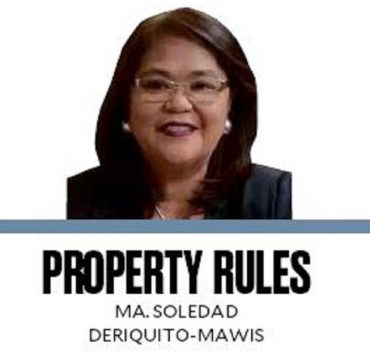Undervalued: The irony of valuation fees

This is a long overdue conversation.
For years, real estate appraisal has quietly influenced decisions that move markets, settle estates, and shape communities. Yet, the professionals behind it remain undervalued.
Imagine making a multi-million-peso decision on a valuable asset like real estate. Will this be based on a number pulled from thin air? Of course not. That’s why licensed appraisers exist—to put real weight behind real estate.
Getting the value right
Real estate is not just land and buildings—it’s wealth, security, and opportunity. For individuals and businesses, it’s often the single largest asset on their books. That’s why getting its value right is critical.
When engaging a professional for services, that relationship is built on trust. And in valuation, that trust is earned through transparency and process. Every report reflects long hours of legwork: inspecting a property, doing research, reviewing comparable properties, studying the market, and weighing risks.
Whether it is an individual acquiring or disposing of a property, a bank deciding how much to lend, siblings dividing inherited land, or a company evaluating an expansion, valuation reports quietly shape major decisions daily.
Expertise and credibility
The credibility of a valuation report is its foundation. And it’s not the format that makes a report credible—it’s the expertise behind it.
In fact, appraisers in the Philippines must pass board exams under the Professional Regulation Commission (PRC), just like engineers, doctors, and accountants. It is a government-recognized profession that plays a vital role in both public and private sectors.
The need for appraisal services is wide-ranging, affecting everything from financing and taxation to estate planning and corporate strategy.
What adds even more weight to an appraiser’s credibility is being listed as an Acceptable Appraisal Company by the Bangko Sentral ng Pilipinas (BSP), and being accredited by the Philippine Stock Exchange (PSE) and Securities and Exchange Commission (SEC). These credentials signal a level of trust and reliability from these institutions and reflect a firm’s standing in the industry.
And yet, here’s the irony: valuation fees in the Philippines—for the same property type, report type, and content—are often half, or even less, than what’s charged in neighboring countries like Malaysia, Singapore, or South Korea. And yet the expectations on the reports are virtually the same.
This gap doesn’t mean work is done with less care here—what it means is the profession itself is being undervalued even if the stakes remain just as high.
Recognizing real value
Paying what the work is truly worth means aligning fees with the weight of the responsibility. When appraisers help shape decisions involving millions, their expertise shouldn’t be priced like a minor expense.
It’s not about inflating costs. It’s about recognizing the real value of the service.
Valuation is not a formality or a quick calculation anyone can do. It’s a decision-shaping service done by licensed professionals. When considering what’s at stake, it deserves to be regarded more than a line item to cut costs on. Because when an appraiser prepares a report with the precision of a Michelin-star chef, it shouldn’t be priced like a fast-food combo meal.
After all, no one should expect gourmet results from a budget menu.
So the next time an appraiser is hired, the question worth asking is: Is the expertise that makes the report matter being truly recognized?
Supporting appropriate compensation for appraisal work is more than a pricing issue. It’s part of building a real estate service industry that reflects the professionalism, integrity, and standards envisioned by the RESA Law.
When the value of the work is acknowledged, the profession is strengthened—and so is the decision-making process across sectors.
The author is the director of Research, Consultancy, and Valuation at Leechiu Property Consultants

















